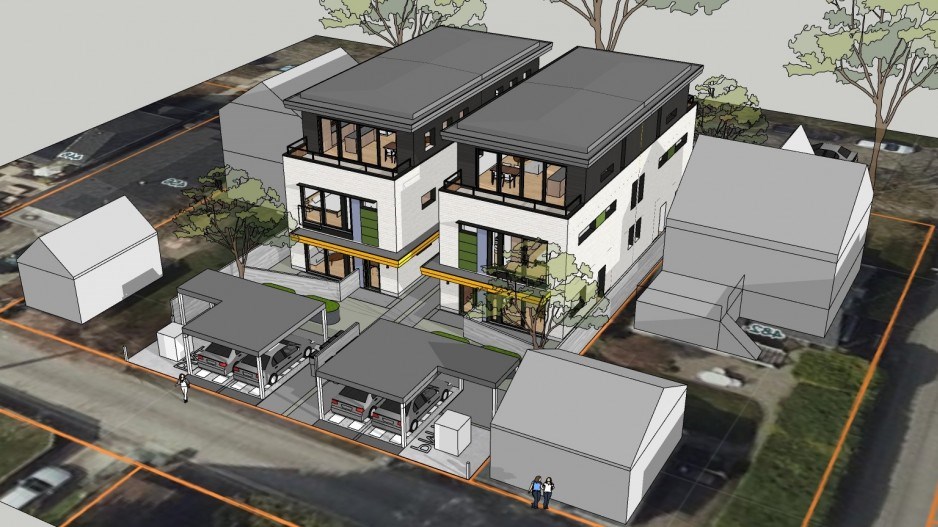The City of Vancouver may soon be taking the next steps towards building more missing middle housing.
City council will vote on a new referral report on July 25 to determine whether it will be brought to a public hearing. The motion focuses on zoning and development bylaws aimed at promoting the construction of multiple dwellings on residential lots, according to the report made public on July 19.
Missing middle housing is a term that refers to housing types that could fall between the categories of a single-family home and a condominium tower.
Local builder Bryn Davidson said the policy is a welcome change and that the construction industry has been asking for this for 20 years.
Avi Barzelai, another Vancouver residential builder, described the move as a “massive change” and a policy that reflected concerns of the industry.
“They really did as good a job as humanly possible to strike the right balance. You're not going to please the Kitsilano curmudgeons who are going to be upset about any kind of change in their neighbourhood, and you're not going to please the uber urbanist types who basically want much greater density than what this is providing. But I think from a political standpoint, it's a really good policy,” he said.
The referral report builds on a January 2022 request in which city council passed a motion instructing staff to look into options that would allow up to six homes on a lot.
The resulting report proposes to “add multiple dwelling as a permitted use to allow the construction of multiplexes as a new housing option with additional units and density.”
In addition, there are recommendations to extend passive house incentives, reduce the maximum size of a single-family home, reduce the number of zoning regulations attached to residential zones and add the requirement of including a “set-rate density bonus payment, a below-market homeownership unit or secured rental housing for the opportunity to access additional density with a multiplex application.”
This is in addition to consolidating nine different residential zoning types into a single zoning type.
“They're consolidating all of the complexity of all these nine different RS zones down into one, which will make things simpler. They're allowing multifamily housing without having to jump through a rezoning or neighbour notification. So, that's all positive,” said Davidson.
This will allow four to six homes to be built on most RS zoned lots, or 60 per cent of the city’s buildable land, Christopher Higgins, senior green building planner with the City of Vancouver, said in a tweet.
“While the city has thousands of single detached houses and has many towers (generally in the downtown), there are few housing options in between,” said the staff report.
Barzelai highlighted that while this is a well-thought-out policy, Vancouver will have to ensure that it stays on top of the housing approval process.
“Just creating the rezoning policy is only half the battle and potentially you're going to get a flood of applicants,” he said. “The city needs to be on the ball to be able to approve those applications in a reasonable timeframe. If they can't do that, then it's going to be extremely slow and arduous.”
Another potential caveat with the report is the proposed reduction to the maximum size of single-family homes, said Davidson.
“I think that there are some existing owners who are maybe planning to renovate or people in very small lots that will find that change frustrating,” he said.
Council will vote as to whether the application will be moved to a public hearing on July 25.
Updated July 20, 2023: This story has been updated to reflect that the July 25 city council vote will determine whether to move the application to a public hearing.




